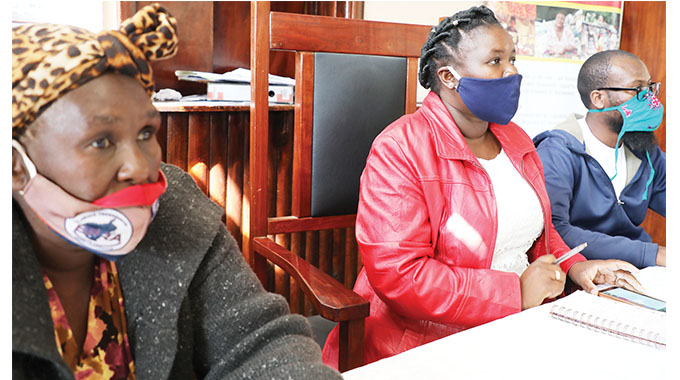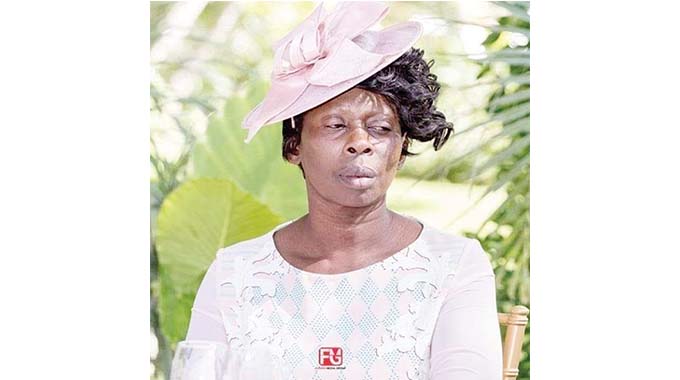Residents withdraw court challenge

Mashudu Netsianda, Senior Court Reporter
BULAWAYO residents who had approached the High Court seeking an order directing council to release the laboratory samples of tap water and other vital information relating to the diarrhoea outbreak in Luveve and surrounding suburbs, have withdrawn their matter.
The residents under the banner Bulawayo Progressive Residents’ Association (BPRA) sought an order compelling Bulawayo City Council (BCC) to release vital information relating to the outbreak, which they intend to use against the council in a lawsuit.
BPRA and one of the victims Mr Chrispen Ngulube, through their lawyers, Zimbabwe Lawyers for Human Rights (ZLHR), had filed an urgent chamber application at the Bulawayo High Court citing BCC as a respondent.
The matter had been set for hearing yesterday before BPRA filed a notice of withdrawal. In a letter through its lawyers, BRPA stated that the parties have reached an amicable resolution.
“Take note that parties in this matter have reached an amicable resolution. Applicants therefore withdraw this matter,” read the letter signed by ZLHR.
ZLHR lawyer Mr Jabulani Mhlanga declined to reveal the details of the agreement.
Twelve people have died since the outbreak in Bulawayo last month while more than 1 500 people have been infected by the disease.
BCC says it is yet to establish the source of the outbreak but residents blame council for pumping contaminated water to households.
Government has said water shedding and vandalism of sewerage infrastructure could have caused the gastrointestinal disease outbreak. Tests done at private laboratories to ascertain the causes of the deaths and illness have been linked to symptoms consistent with typhoid and dysentery.
In their application, the residents wanted council to avail complete and legible copies of records of laboratory test results for samples of potted and municipal tap water taken from various containers and unspecified residences between May 17 to the date of issue of the order.
They also wanted council to avail records and documents related to routine maintenance, inspection, repair schedules of water infrastructure including fresh water and sewer pipes for Luveve for the period between January 1 to June 25, 2020.
In his founding affidavit, BPRA coordinator Mr Emmanuel Ndlovu had said council did not make public, the nature of the bacteria found in the water which residents drank and also failed to particularise the standards used to pass the tap water as satisfactory.
He said BPRA and affected residents had resolved to sue BCC for allegedly causing the death of 12 people and infection of more than 1 500. “This application is brought pending a civil suit referred to as a class action against the respondent (BCC) for the purposes of collecting and preserving some evidence that is necessary for the proof of the claims in the proposed class action,” said Mr Ndlovu.
“In that regard, appropriate initiating processes will be used in this honourable court and formally served in due course. The evidence at issue is in control and custody of the respondent and it is my earnest belief that it might be destroyed if applicants were to wait for litigation.”
Mr Ndlovu said since council was refusing to be liable for negligence, it was likely to conceal or destroy the evidence. “The respondent is moving with a sluggard pace in so far as the release of information to the public is concerned. People continue to suffer unbearable pain and to die from this gastrointestinal disease outbreak yet the respondent continues to supply water through its old pipes,” he said.
He said residents were demanding an independent expert appointed to collect samples of the water and pipe system to determine the cause of the outbreak.
They accused the local authority of attempting to cover their tracks by embarking on a rushed exercise to lay new polyvinyl chloride (PVC) water pipes in the suburb.
Residents reported that the water, when pumped from the tap, was discoloured, with particles of solid matter, greyish brownish, dark green in colour. They said the water was odoriferous and want to be granted access to the plumbing maintenance sites in the suburb.
In his supporting affidavit, Mr Ngulube said residents continued to suffer from the gastrointestinal illness after drinking tap water.
He said without exception, all affected residents collected and used the water after one of the regulated five days of water cuts imposed on most of the city by the council. — @mashnets










Comments